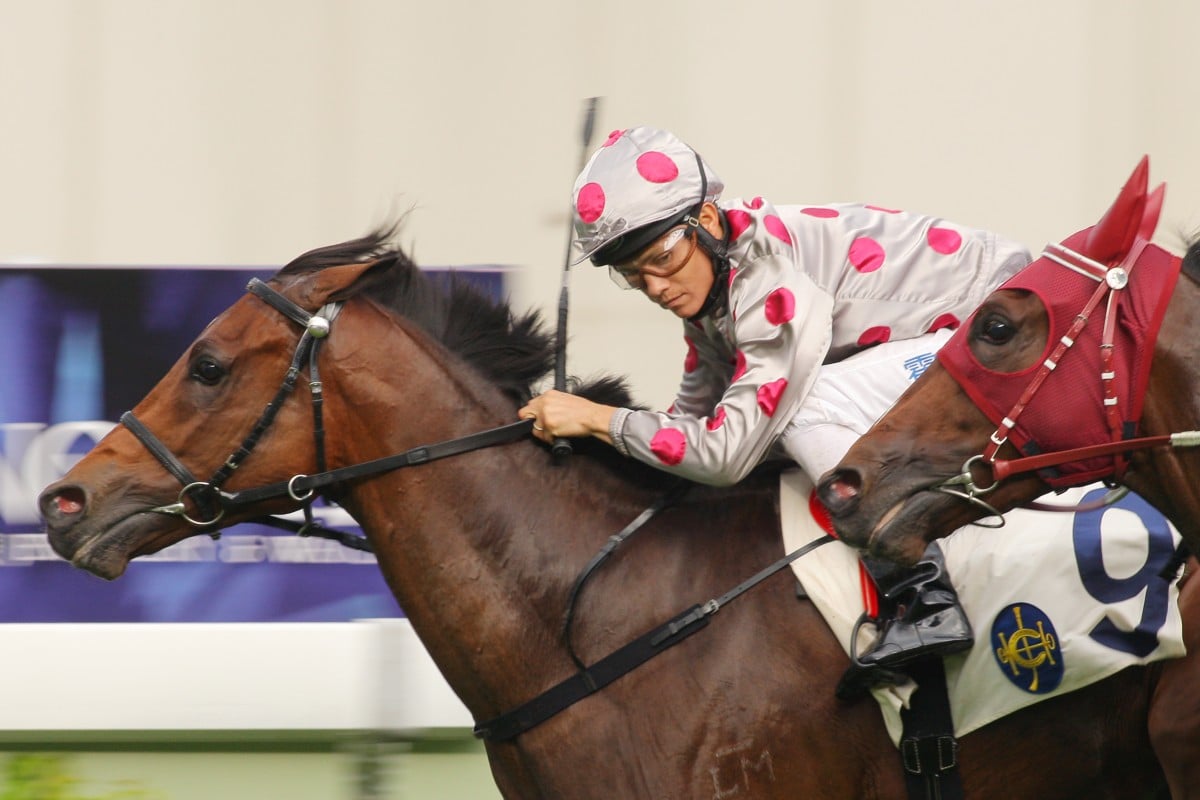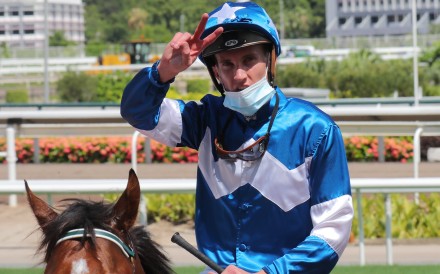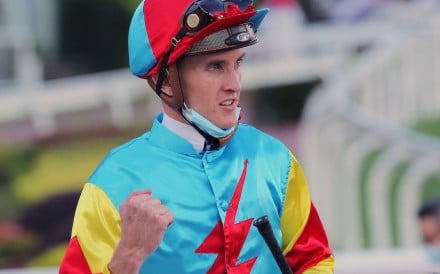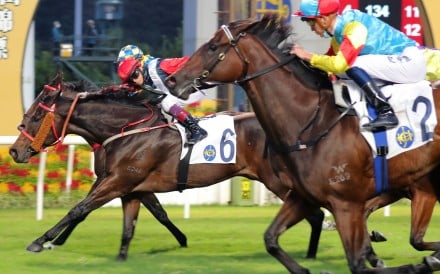It’s great that the Jockey Club has opted for two fresher faces in the jockey ranks next season in Chad Schofield, a first-timer, and Richard Fourie, a second-timer who made a good impression at his debut attempt a few years ago.
Schofield’s appointment sends shivers down the spine of any of us old enough (hand raised) to remember him as a boy playing in the trees at the turn out of the Sha Tin straight, waiting for father Glyn to finish his day and meet him on the walk home.
But it’s a great move for a seriously promising jockey.
We have to wonder if there is another rider still to be named should Jacky Tong Chi-kit and/or Dicky Lui Cheuk-yin fail in their hearings before the licensing committee. If both were to fail, that would leave 19 riders for opening day and it is usually 20 or 21. Regardless, the roster changes will put more pressure on local riders.
The Chinese jockeys have tended to seek refuge in opportunities at the light end of the weight scale, but the last two seasons have seen lightweights Karis Teetan and Joao Moreira turn up, and turn up the heat. Now Schofield and Fourie, unless the latter has ballooned, will only make it hotter.
The club’s apprentice programme stalled for a few years – no actually, it was stripped and up on bricks – and, now there are signs that it might be getting started again, the club needs to be mindful of opportunities if it wants future local jockeys.
When the Chinese riders were ready for last rites a decade ago, the club introduced weight allowances to rescue them as a collective – but mostly as lightweights.
This season, of 1,242 horses which carried 116 pounds or less, the only expats in the top 13 jockeys who rode them are Moreira (13th) and Teetan (8th).
Expats rode 13.9 per cent of this group of horses but won just under 26 per cent of the 58 races they won. So we see that the better quality of lightweight ride is already skewed towards expats – many of the others are, to put it bluntly, horses being run down.
Take that research up just one pound, to horses which have carried no more than 117 pounds in their races – and that isn’t even getting into Zac Purton and Douglas Whyte territory – and the picture for locals gets worse immediately. For the sake of a pound.
With 117 pounds or less, there have been 1,548 runners, expats rode 15.6 per cent of them but won over 27 per cent of the 81 races won by that group.
Every pound you take up the lowest weight, the disadvantage grows for local riders in terms of getting rides at all and especially in terms of getting competitive rides.
It is their physical advantage at making the light weights that keeps them in the game, so adding two more foreign jockeys – doubling the current number – must hurt.
The easy response is to say they have to lift their game and compete but that is glib. Why the Jockey Club should care falls into two areas.
The first is local rider development – as noted above -– and the other area is integrity.
The truth is that, if opportunities for local jockeys to win dry up, then they must look for whatever other opportunities exist.
That might entail influencing the pace or the running of races, getting involved with punters to make winners count for more than just a percentage of prize money – any number of things the club does not want to encourage.
A battling expat goes home and slots back into whatever good role brought him or her here in the first place; the locals cannot and face demotion to work rider or a move out of racing.
Bring new young faces by all means, but always remember Hong Kong racing is a fragile ecosystem easily pushed out of kilter.
Moving on, it’s that time of year when trainers lament the scarcity of ownership permits won in the ballot last week by their regular clients (as opposed to someone else’s clients), when fingers get pointed and accusations circulate.
There is a great deal about the administration of racing which has to be trusted to professionals with an assumption of fairness until shown to be otherwise, but there seems a growing belief that the ballot process is not one of them.
There were suggestions the ballot should be drawn in public, maybe after the last race. Or that it be televised, so the viewers could monitor the fairness of the process (since that is so important to everyone who isn’t involved). It’s hard to imagine worse television than the drawing of hundreds of names of people (who aren’t you) to race a horse – it would make the traffic channel look like a Jason Bourne movie.
Only around 1,000 club members a year take part in the ballot – let’s make it round numbers and say that makes someone a 33 per cent chance to get a permit. Which means you might get a permit one year in three, or, maybe you go 15-20 years and not get one. That’s probability, a slippery, only vaguely predictable lady.
But, yes, these things need to be above suspicion, so over to the Jockey Club – allow everyone to watch the draws for starting gates or owners’ permits every time they happen. And let’s see how many think it’s important enough or flawed enough to still be there the third time.
On the subject of owners, we had the pleasure of attending the Hong Kong Racehorse Owners Association Parade Ball last week. We’ve been to these things before, just not in Hong Kong, and it was different.
Between courses and speeches, people ate, drank, worked tables, reduced business card stockpiles, bought raffle tickets, one particularly well-known Nathan Road tailor fresh from shirting Justin Bieber seemed to bob up mysteriously under tables measuring inside legs at random, and then there was the line in the programme about “charity singers”.
This was new – well-known owners, members of the Jockey Club board of stewards, even a coming chairman, listed to busk for charitable donations?
This was going to be hilarious, or would have been in Australia, where actual singers sound like an animal being tortured, let alone business people, lawyers, etc.
But this was very different. Sure, one owner called out that he would pay HK$100,000 to charity just for one of the named singers to not sing, but others paid up to HK$350,000 for a song. Even Bieber might have lined up for that – could have paid half his shirt bill – but he wouldn’t have been top seed by the finish because they were good. Maybe not HK$350,000 good, but good. That just doesn’t happen where I come from. Kudos HKROA.





















